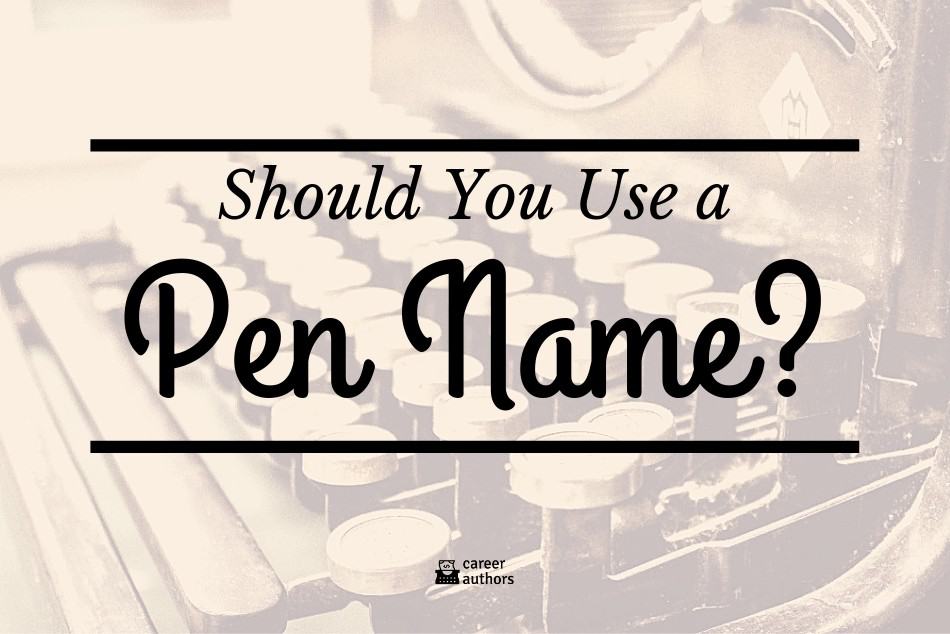If it’s good enough for Stephen King and Nora Roberts, it’s good enough for you, right? Not so fast. There are pluses (anonymity) and minuses (promotion burdens) associated with pen names. Before blithely assigning yourself a new moniker, consider some of the reasons an author might choose to use a pen name.
The project is work-for-hire and the publishing house will own the name
That’s why I became Lila Dare for the Southern Beauty Shop Mysteries. Berkley Prime Crime owned the rights to the series and the author name so they could hire someone else to write more books in the series if I dropped out after the initial three-book contract (which is exactly what happened). Think Nancy Drew books being written by a long line of Carolyn Keenes. If this is your situation, you have no choice. Start dreaming up noms de plumes now.
Earlier books under your own name bombed
It happens. Sometimes, the only way to get another contract is to hide the fact that earlier books had dismal sales, or even “just okay” sales. The books earned out, but weren’t in Gone, Girl territory. No shame in that.
I could name half a dozen authors who went on to much more significant success under a pen name after their initial efforts were meh in the sales department. (I won’t actually name these people because I’m not sure how open they are about it.) Your agent is a great person to talk to if you’re thinking you may want to use a pen name for this reason.
The books you write are incompatible with your day job
You’re a kindergarten teacher and you write erotica, say, or a lumberjack who writes Regency romances. Or, you have a boss who would be annoyed to learn you were wasting all sorts of time writing novels that could be spent racking up billable hours. In these cases, it might be wise to disguise your identity with a pseudonym.
Your family/friends/coworkers are (recognizably) in the book
Did you make Aunt Dolores the murderer in your latest mystery? Is your cubicle-mate, Myron, the doofus who strikes out with all the women in your book? Perhaps your father is the milquetoast loser in your mainstream novel, or the abusive alcoholic, or the emotionally distant and absent dad. Setting aside the wisdom of putting people you know into your books (that’s another post), it might be a good reason to adopt a pen name.
You’re switching genres
Agatha Christie became Mary Westmacott when she took to writing romances. Nora Roberts is JD Robb when she writes futuristic police procedurals. The logic process here is that you want to clue readers in that your latest book might not be what they’ve come to expect from you.
The book cover and jacket blurb should be enough to let readers know what kind of book they’re getting.
I don’t think that providing readers with more clarity offsets the burden of promotion and marketing under two names. However, many authors do it. Discuss this with your agent and editor(s). (For the record, I have written cozy mysteries, suspense thrillers, YA sci-fi, and women’s fiction under one name and my readers seem to be smart enough to figure out which of my books are up their alley and leave the rest on the shelf.)
The genre you’re writing has author gender expectations
Let’s face it: Most readers want a romance written by a woman and prefer a techno-thriller written by a man. If you’re writing in a genre where authors of the opposite gender sell more books, it only makes sense to use a pen name that is going to attract more buyers. Dean James writes cozy mysteries as Miranda James, for example, and Harold Lowry is the successful romance writer Leigh Greenwood. Using your initials can work in this category if you don’t want a whole new identity: CJ Lyons, JD Robb, PD James, VC Andrews.
Your real name is not distinctive or is otherwise unsuitable
John Smith is not going to stand out in the stacks (even choosing an author domain name could be a barrier). Jack Reacher, even if it’s your birth certificate name, is going to raise issues you don’t want to deal with. Totally unspellable/unpronounceable names can make it difficult for readers to find you. In these cases, the choice to use a pen name might be advisable.
You had wild success with your first book and you want to know …
… if people are buying your follow-on books because they’re good and not because you’re famous.
J.K. Rowling/Robert Galbraith—glad you’re here!
Have more reasons to use or not use a pen name? Let us know on Facebook.





